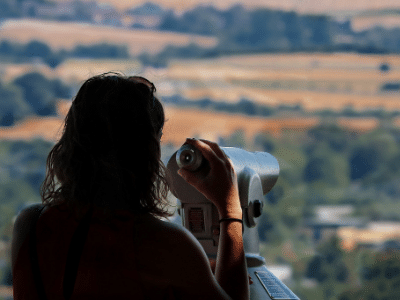

We've all seen the wonderful results achieved by proactive people. From world leaders to business owners and people who are confident in the dating scene, proactivity can lead to fast, significant results.
Indeed, it's one of the key predictors of a successful Law of Attraction work.
Those who score high on proactivity are better at manifesting their life goals. But what can you do if you're not proactive? What do you need to do to change?
We'll start by looking at what it really means to be proactive. From there, we'll start to look at how you can begin to be more proactive in your own life.
We'll offer five practical techniques you can use starting today, and we'll also explore how you can spread proactivity to those around you.
Finally, we'll consider the idea of proactive manifestation, and how you can use what you've learned about proactivity to become more effective in achieving your dreams.

Let's begin with this foundational question: What does it mean to be proactive?
Firstly, it doesn't mean taking intuitive on a particular thing.
Rather, it's a kind of mindset or attitude shift that means you act rather than reacting.
You become active, rather than passive, and you play a role in creating the events that develop around you.
In addition, being proactive means making decisions that serve your long-term ends, not just making choices when you're forced into it.
In sum, the proactive person directs their own narrative instead of drifting along on the river of other people's decisions and desires.
With this in mind, it's helpful to break proactivity down into its key features – these are the features we'll help you cultivate with our five techniques.

Taking a proactive approach to life, then, involves the following major features:
Anticipation: you look at long-term goals, not just the present. So, for example, you don't react to the mood of the day but rather organize the day around the future you want to create. You think ahead to anticipate your own needs and opportunities.
Change-orientation: you actively seek out and create change, rather than just adapting to it if it occurs in your life.
For example, you don't only think about changing jobs when you're made redundant – rather, you actively and continuously question whether your current role helps you grow. You embrace change even when it's daunting.
Self-directedness: you don't need to be asked by others to act, and nor do you need to be given a set of detailed rules to follow.
For example, if you meet someone with whom you'd like to develop a friendship, you ask them to do something rather than assuming that they'll ask you if they want to get to know you. You are comfortable writing the rules for yourself, and prioritize growth over the fear of rejection.
Of course, these are just the key ingredients of proactivity. Recent psychological research also suggests that other factors in maintaining a proactive attitude involve planning, reflecting, and envisioning.
Planning means brainstorming steps to take and following a roadmap you design for yourself. Meanwhile, reflecting is all about continuous monitoring of your progress, and changing course when things aren't working as well as they could.
Finally, envisioning is similar to the creative visualization work advocated by Law of Attraction practitioners – it's dreaming about the future, and believing in the potential to turn that dream into reality.

Proactive work has some similarities to related behaviors, but it's good to have a clear idea of the boundaries between proactivity and other traits.
Firstly, proactive isn't quite the same as proficiency. When you're proficient, you meet specific rules effectively – but it's possible to do this without being proactive in the slightest.
Secondly, proactivity is distinct from adaptability, which measures how well you respond to changes. Once again, since proactivity involves seeking change, you can be adaptable and yet never proactive if you never actually deliberately create change.
To be clear, both proficiency and adaptability can also help you manifest more effectively, and in many cases, proactive people are also proficient and adaptable.
However, it's important to be aware that simply becoming proficient and adaptable isn't enough to make you a proactive person. There must also be a drive to create change and to plan for an abundant future.
Now that you have a clearer idea of what being proactive means, let's look at concrete ways you can work to become more proactive in your own life.
We'll look at five proactivity and productivity tips that you can bring to your Law of Attraction work, helping you to manifest more effectively than ever before.

One of the best proactive thinking skills to hone is that of foresight. To become proactive, you have to learn how to better predict what's coming. While you don't need to be psychic, you do need to pay attention to patterns.
For example, the behavior of people you know tells you a lot about what you can expect from them in the future. And the natural cycles of the economy give you information that's useful if you're planning to start a business.
However, proactive people never get bogged down in one possible future – they're always aware that foresight requires creativity.
To develop foresight, challenge yourself to predict at least two things that will (roughly) happen this week. Write down the patterns and clues that justify your predictions.
If you get it right, hold onto that information. If you misfire, notice where you want wrong and recalibrate for the next weep's attempt at the same exercise.

As noted above, the more proactive you are, the more you take initiative in life. One significant aspect of taking initiative is to practice anticipatory problem-solving.
In other words, take steps to prevent or minimize the damage caused by something that might not even be on someone else's radar.
This is empowering – instead of surrendering to luck and circumstance, you take control of your own situation as best you can. While such a strategy is fallible, it optimizes your chances of success.
To combine initiative with your Law of Attraction work, think of three things that might stop you from attaining your goal. Then, come up with a battle plan for tackling each of these blocks to manifestation.
Throughout, maintain a positive attitude – you can beat these setbacks. And if you don't do so every time, turn those moments into lessons – what will help you find and solve problems more effectively next time?

When you're focused on what's going on in your life, it's easy to get sucked into one-step thinking where all you consider is the present moment.
To be more proactive, you need to look at what's going to happen and try to anticipate what will happen next.
Ask yourself: how can I plan ahead to ensure success tomorrow? This is all part of proactive vs reactive attitudes – you need to see each decision as one in a chain of decisions that all add up to your dream future.
One technique you can use to develop better planning skills involves breaking all your goals down into smaller goals. So, for example, say you already know you want to manifest a new business.
What do you need to do to get there? One of the steps might be building a website. Then that goal can be split into further goals – such as writing a biography and uploading images.

As much as being proactive involves pushing ahead and acting independently, it also requires us to interact with other people and the world.
More specifically, if you're proactive you'll be an active participant in life and not an idle observer. In psychology, the bystander effect refers to our tendency to act more slowly when others are present.
For example, if someone is in distress, we're less likely to and help them if there are several other people nearby. The same can be true for opportunities – we might not grab at an opportunity because others are there, and we assume they'll be quicker or more deserving.
Now, what can you do to move out of bystander mode? Some psychology experts suggest it has a lot to do with self-awareness.
So, for example, keeping a diary and sticking to daily mindfulness practice can help you become more on time with others and how you respond to their presence.

The biggest key to proactivity is just to commit to a decision to stop procrastinating. You must jump into being decisive, rather than simply planning to change over the coming weeks or months.
However, acting now doesn't mean acting impulsively. Rather, it means making a careful, considered decision and turning it into reality immediately.
To reach this state of mind, try practicing. For this week, write down three things you're going to do. For each of them, write a plan for the stages that these goals will involve.
Keep them limited and manageable at first – such as getting rid of old clothes, or having an important conversation you care about.
In the old clothes case, for example, your plan might be this: find at least five things to give to charity, five things you can give to friends, and five things you'll wear more often.
If you follow such a list every week, proactivity becomes second nature.

Of course, much of our work is done with others, so you may be wondering how to induce proactivity in people around you.
Firstly, simply modeling a proactive attitude can go a long way – others will see how well it works for you, and want to emulate it.
In addition, the Law of Attraction tells us that your proactivity will draw more and more proactive minds toward you.
This gives you the best chance to find an ideal business partner, a promising romantic partner, or even just a wonderful new friend.
Further, don't be afraid to share your proactivity tips with others. You can explain how they've helped you, and how you think you and the other person can benefit from tackling a proactive life together.
Everything that you're learning and putting into practice about proactivity will make you a better more manifest.
The core traits of both types of people overwhelmingly overlap, so by developing a proactive mindset you also cultivate a mind that uses the Law of Attraction to its advantage.
Plus, proactivity is innately positive – it's forward-moving, it's bold, and it represents trusting and valuing yourself. All of these boots your vibrational and helps you stay in a place of abundance, attracting more good things into your life.
There are many ways to merge manifestation and proactivity techniques, but let's end with two of the most powerful – living “as is” and creative visualization.
Living “as if” is a Law of Attraction exercise that challenges you to act, walk, dream, and talk as though you already have all the things you want.
This is exactly the kind of technique that also pushes you to embrace change and create calculated risks. Meanwhile, creative visualization is all about building up a detailed mental picture of what you want.
Picture yourself meeting that goal right now. In so doing, you both embody proactivity and help to attract your dream goals toward you.
